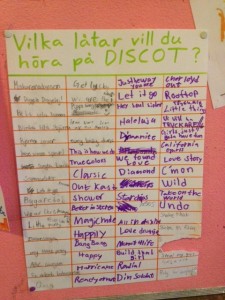Yesterday came the sad news that the great British jazz clarinetist, Acker Bilk, has gone to that great gig in the sky. Dapper Acker, with his trademark striped waistcoat , has been delighting audiences for over 60 years with his distinctive and melodious playing.
He also had the distinction in 1962 of being the first Brit to achieve a Number One hit in the USA . His hauntingly beautiful instrumental, Stranger on the Shore, originally written for his daughter Jenny but then used as the theme song for a TV series is known throughout the world.
Reading through anecdotes from those who met him, he sounds like a thoroughly nice chap. He was from the West Country and remained a local patriot. “Acker” is Devon slang for friend.
What is probably less known is that in 1960 Mr Bilk found himself in the middle of a riot at the Beaulieu Jazz Festival and had to try and pacify an army of rioting beatniks with his soothing sounds. I think of jazz fans as a rather sedate bunch. Sitting peacefully in Fasching or Stampen, stroking their goatee beards and digging a sax solo or two.
This was not the case in the early 60s. Be Bop had arrived from the US and its fans, the beatniks, passionately clutching their copies of work by Kerouac or Jean Paul Sartre, were a fundamentalist crowd who did not want to listen to trad jazz. The fans of the two kinds of jazz clashed violently at Beaulieu and Lord Montague looked on in horror as his stately home became a battle ground.
The tabloid press had a field day. These “soapless and hopeless” hooligans were a threat to the fabric of British life. They were as anathema to the establishment as the punk rockers were to be 25 years later. A fascinating chapter in British life. This amusing article tells the full story.
http://monkey-picks.blogspot.se/2013/06/beats-beatniks-and-beaulieu-jazz-riot.html


